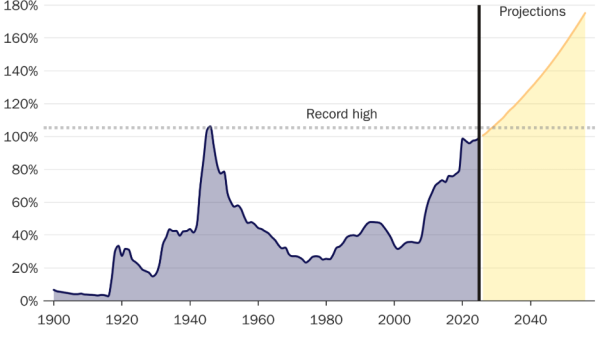It is no secret that many of the nation’s largest and most prestigious law firms went woke. For years, they have publicly championed left-wing social causes, fired conservatives for representing conservative clients, and used racial preferences for applicants and employees.
That last one has gotten them into trouble with the Equal Employment Opportunity Commission, a federal agency tasked with policing employment discrimination.
The Acting Chair of the Commission, Andrea Lucas, has sent letters to twenty firms requesting information about their race-based employment practices. The letters appear to be a prelude to investigations and, depending on how the firms respond, enforcement actions.
The letters to the firms are titled “Review of [Firm’s] Compliance with Title VII of the Civil Rights Act of 1964,” and reveal shocking practices that top lawyers, like those who staff these firms, should have known were illegal.
For example, about half of the letters suggest that the firms held attorney applicants to different standards depending on their race. It has long been rumored that some of the top law firms required lower GPAs for black and Hispanic applicants than they did for Asian and white students, and would recruit the former from lower-ranked schools than they would the latter. The letters suggest that this rumor was more than speculation.
To prove whether the firms are using different standards for different groups, the letters ask the firms to produce information about their applicants’ race, law school, and GPA. The law firms could refuse to disclose the information, which might raise the inference that they are guilty. Like the good lawyers they are, they will defend their nondisclosure by saying that refusal to provide exculpatory information is not an admission of guilt. Although technically correct, that rule is little help in race discrimination cases, which turn on intent, and the practices documented in these letters are strong evidence that the firms intend to discriminate.
For example, the letters describe the firms’ “diversity scholarships” and “diversity internships.” These programs offer priority access to job interviews, pipelines to employment, special stipends or scholarships, or additional pay all given to people because they check a certain identity box — a plain violation of Title VII of the Civil Rights Act, which forbids employment discrimination.
Some firms, perhaps thinking that they were being clever, outsourced this discrimination to third parties. Kirkland & Ellis, for example, partners with an organization called “Afro Law,” which gives “Afro” students a “pipeline” to employment with Kirkland that is denied to applicants of other races. Kirkland and many other firms on the list also partner with Sponsors for Education Opportunity (SEO), which despite the less-obvious name, does much the same thing.
As the letters explain, SEO is another fellowship program that partners with law firms to put its fellows on fast-tracks to employment at these firms. It also entitles fellows to extra pay or scholarships, mentoring, and other things that Title VII calls “terms, conditions, or privileges of employment.” Although SEO says its fellowship is open to anyone, the letters document how the fellowship is, in fact, limited to “students of color.” Unhelpfully for both SEO and the firms that partner with it, some law schools, like Columbia University, revealed the truth and told students that the fellowship is restricted to, or at best focused on, certain racial groups at the exclusion of others.
Perhaps the lawyers thought that discrimination was permissible if it was outsourced to third parties, but this is delegated discrimination, and it doesn’t fly under Title VII.
The letters also target race- and sex-based staffing quotas. These are demands, usually made by clients, that specific matters are staffed with specific numbers or percentages of lawyers from various race, sex, or gender groups. As explained elsewhere, these programs typically hurt the lawyers they are supposed to help by denying them control over their own careers. Lawyers from the groups on the quota lists are forced to work for clients that maintain such lists whether they want to or not, whereas lawyers who aren’t on the lists remain free to work on whatever they choose.
Then there are “Affinity Groups,” another practice that the firms are not shy about. As the letters explain, these are employee groups organized around race, ethnicity, sex, or other characteristics that Title VII prohibits organizing around. The letters demand to know whether participation in the groups is a factor in getting promoted. But even if it isn’t, the groups are still a special “privilege of employment,” and therefore prohibited.
The discriminatory practices go on. The letters demand that firms explain their annual reports and plans for increasing “demographic representation.” They demand that the firms reveal whether they hired or promoted people because they checked an identity box, whether partners’ compensation was tied to “representation goals,” and whether the firms paid bigger recruitment bonuses to employees who recruited candidates who checked certain boxes.
Reading through the letters (together, they span 210 pages), one wonders how on earth the most prestigious lawyers with the shiniest credentials our elite universities can offer could have done all this. Title VII is not a new or complicated statute, after all. Its core provision says simply that it is unlawful “to discriminate against any individual with respect to his compensation, terms, conditions, or privileges of employment, because of such individual’s race, color, religion, sex, or national origin” and to “limit, segregate, or classify” individuals in a way which tends to adversely affect their employment. No one needs a law degree from an Ivy League law school to understand it. But perhaps prestigious degrees are precisely the reason that these lawyers misunderstand it.
A degree from those vaunted halls was once a reliable indicator of intellect and good legal judgment. Now, however, it’s a reliable indicator of zealous adherence to a trendy ideology that says “the only remedy to past discrimination is present discrimination.” By the dim light of that backward dogma, the law is either a tool of oppression or a plaything to be melded by the cognoscenti, but either way, if it commands a benighted outcome, it can be ignored. And so it has been.
Rebels against this ideology who have spent time in these firms will not be surprised by the letters or the practices they detail. In truth, the only surprising thing about the letters is that more firms didn’t get one. When the list went public, heterodox thinkers at other firms reached out to say things like “I’m amazed my firm isn’t on it.”
To which a twofold response is due: First, save some screenshots and please share them. And second, just wait. We’re two months in; 46 remain.



























